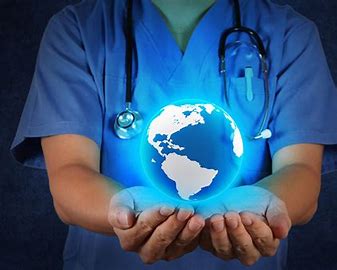test adta

health tips provided by doctor
Eye Health Alert! Do Not Make THIS Common Mistake While Using Your Phone
In a world of digital technology, it has become almost impossible to turn away from glaring at our phones or laptop screens. This has become a widespread health concern, especially in regard with eye health. Eye problems can occur due to several reasons, one of which is the constant use of phones and long hours of screen time.
The Journal of Medical Case Reports have come across a woman who was left partially blind from staring at her mobile device in broad daylight. Therefore, doctors have warned against the use of phones on a sunny day, given that it can be dangerous for the eyes.
Maculopathy, also known as macular degeneration, is a disease that affects the back of the retina, called the macula. Those with maculopathy don’t go completely blind, but often lose their central vision. In case of solar maculopathy, one may experience damage of the retina and the macula due to direct exposure to the sun.
test
health tips


Diet for patients with kidney failure (hemodialysis dependent)
When the kidneys are not able to perform their functions properly and naturally, a person lives on an artificial kidney. The normal function of the kidney is to cleanse the blood of toxins, but the dialysis machine does not clean the blood with the same efficiency of a normal kidney (throughout the day). Therefore, kidney failure patients must reduce the amount of toxins accumulated between dialysis sessions and this involves following a special diet.
Important instructions:
1- This diet is suitable for hemodialysis-dependent kidney failure patients.
2- The diet should be supervised by a nutritionist.
Here are the most important nutrients:
Protein
The hemodialysis process causes loss of protein, so food must be rich in protein. Protein amounts should be as recommended by the nutritionist according to the patient's weight.
Milk, yogurt, cheese, eggs, meat, and chicken are all among the food rich in protein.
Fluids
When the kidney function deteriorates, the amount of urine decreases, which requires reducing the amount of fluid intake. This is very important because increased fluid intake can lead to retention in the body, which may lead to shortness of breath and swelling in the body, thus increases blood pressure. So, the specified amount of fluids such as water, juices, and liquid food must be adhered to.
Sodium
You should avoid eating salt because salt increases fluid retention in the body and increases blood pressure.
Sodium is found in table salt and Maggi, canned, salted, or smoked meats and fish, salty cheeses, canned vegetables, olives, pickles, nuts, ketchup, and others.
Potassium
In case of kidney failure, potassium accumulates in the body, which leads to a risk to the patient’s life due to its effect on the heart.
Foods high in potassium: beans and dried beans, lentils, falafel, chickpeas, fenugreek, hazelnuts, sesame, bulgur, nuts, avocado, banana, dates, apricots, figs, melon, watermelon, kiwi, orange, raisins, mango, guava, pomegranate, tomatoes, potatoes, artichokes, squash, raw grape leaves, coriander, parsley, purslane, and all dried fruits and vegetables.
- Note that boiling vegetables and soaking them for an hour or two after peeling and cutting them into small pieces removes of a large proportion of potassium.
Phosphorus
Eating food rich in phosphorous should be reduced to prevent bone diseases such as osteoporosis.
Food rich in phosphorous: fish and all seafood, liver, turkey, lentils, beans, whole grain products (bran), nuts, seeds, yeast, dairy products, eggs, cheese, ice cream, soft drinks, chocolate, and cardamom.